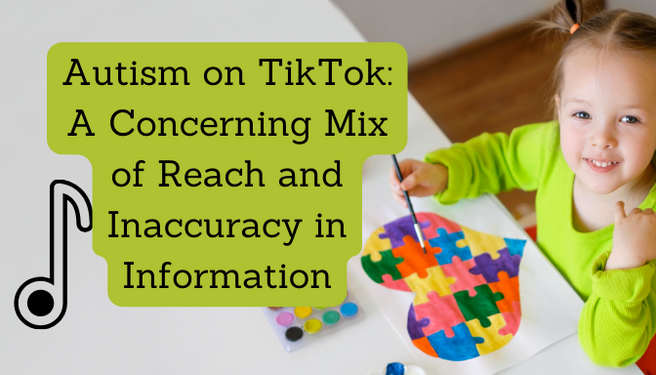In an era where social media platforms play a pivotal role in disseminating information, a recent study raises concerns about the reliability and accuracy of content related to autism on TikTok, one of the world’s most popular social media platforms. While these platforms have undoubtedly increased accessibility to information, the unfiltered nature of the content they host has sparked discussions about potential misinformation.
The study, conducted to assess the reach and accuracy of informational content related to autism on TikTok, focused on engagement indicators such as views and “likes” associated with the #Autism hashtag. Researchers independently fact-checked the most viewed videos from this hashtag, classifying them as accurate, inaccurate, or overgeneralized based on their consistency with current knowledge on autism.
Results of the study revealed that videos associated with the “#Autism” hashtag collectively amassed a staggering 11.5 billion views. However, a closer examination of the top 133 videos providing informational content on autism, totaling 198.7 million views and 25.2 million likes, exposed a troubling reality. Only 27% of the videos were classified as accurate, while a concerning 41% were deemed inaccurate, and an additional 32% were categorized as overgeneralized.
Surprisingly, there were no significant differences in engagement metrics between videos with accurate information and those with inaccurate or overgeneralized content. This finding suggests that the popularity of a video may not necessarily correlate with the accuracy of its informational content.
Furthermore, videos created by healthcare professionals stood out as more likely to include accurate information. This underscores the importance of credible sources in disseminating information about autism on social media platforms.
In conclusion, while the informational content about autism on TikTok has an impressive reach, the majority of the information provided appears to be misaligned with current knowledge. This discrepancy raises a red flag, emphasizing the critical need for healthcare providers and other professionals to be vigilant about the autism-related content being shared on TikTok. By doing so, they can actively engage with the vast TikTok community and work towards correcting and clarifying misinformation, ultimately fostering a more informed and supportive environment for individuals with autism and their families.
Reference
Other interesting articles:



